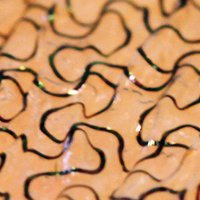Nanotechnology & materials
Bozhi Tian
Artificial tissue that can monitor and improve health down to the level of individual cells
Illustration by Michael Gillette

Global
Nanshu Lu
Soft, flexible electronics bond to skin and even organs for better health monitoring

Latin America
Nadim Morhell
A new diagnostic tool to measure neonatal blood viscosity

Europe
Matthieu Sonnati
Eco-friendly and fast-drying paints made with biological material

Latin America
Ana Laborde
Sustainable bio plastics made from tequila waste products
